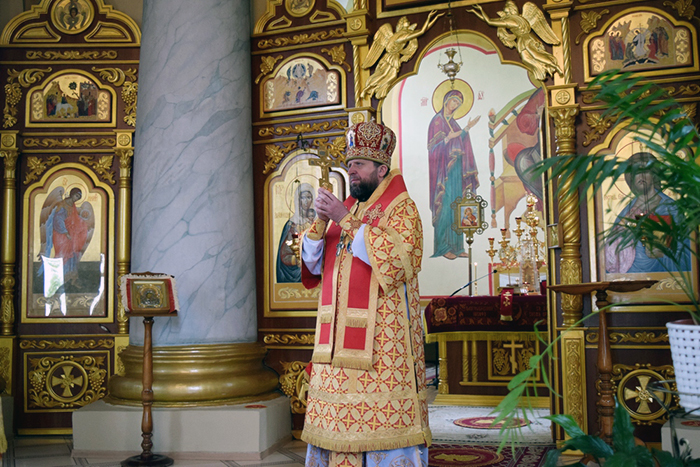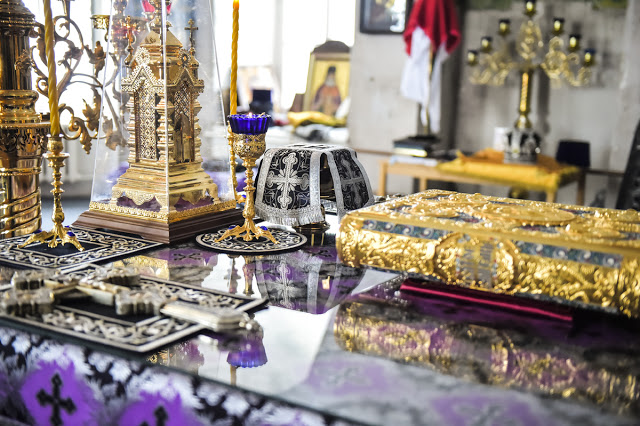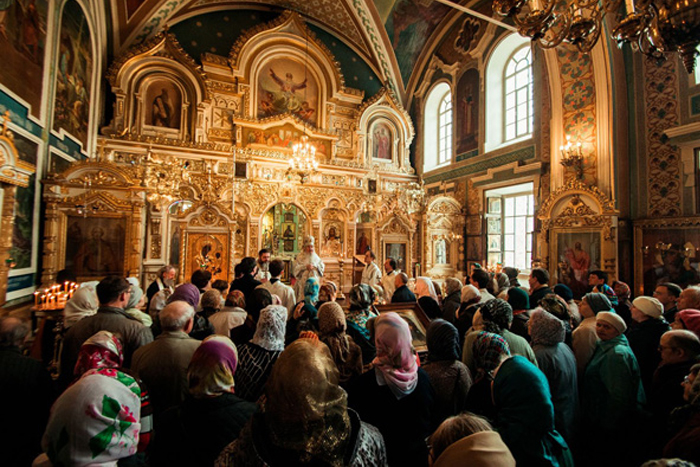
The tradition of ordaining representatives of monastic clergy as bishops is not inherent in the Church at all. The evidence of this is provided by the words of the Holy Apostle Paul from the so-called Pastoral Epistle to Timothy, which clearly speaks about candidates for bishopric from among married people, “A bishop then must be blameless, the husband of one wife” (1 Tim. 3:2).
On the one hand, commentators explain this prescription by pointing out that the institution of celibacy was not widespread in the then nascent Church in principle. The environment in which Christianity emerged – and these were by and large two peoples, Jewish and Hellenic – was very disapproving of the rejection of the family. According to Blessed Theodoret of Cyrus, such a negative attitude to celibacy was due to the fact that the pagans had no idea about chastity, while the Jews did not allow it, since they considered childbirth to be a blessing.
The perception of celibacy changes in the time of the apostles, however. This is what we see in the example of the same Holy Apostle Paul. The main criterion that should distinguish a minister of God is not his marital status, but his zeal in the divine service and his commitment to absolute loyalty. Thus the Apostle insists, “He that is unmarried careth for the things that belong to the Lord, how he may please the Lord: But he that is married careth for the things that are of the world, how he may please his wife” (1 Corinthians 7:32-33). It is for this reason that the First Apostle himself chooses the first way, and remains celibate. But this choice of the Apostle Paul was never imposed on other candidates for the holy ministry in the early Church.
Over time, we find more and more evidence in the history of the Church that it was the monks who were elected as bishops: at first it sounded like a mere recommendation (for example, in the letters of St. Athanasius the Great), and later as a guideline.
One of the novellae* by the holy Emperor Justinian, issued in 528, states: “It is forbidden to ordain a candidate as a bishop, unless the elected, worthy in other respects, does not have children and would no longer cohabit with his wife, but instead of his wife would cling to the Church, remain in abstinence, and would have Orthodox Christian people as his children.”
The same is said in another novella of the same emperor: “No one shall be appointed bishop except in the event that he assumes monasticism or is admitted to the clergy for at least six months, and in the latter case only those who have no children or nephews and are already separated from their wives forever shall be appointed. Leaving all the past in oblivion, we do not persecute those (bishops) who have lived with their wives for a long time: but it is not allowed to ordain those who have a wife. Otherwise, the ordained loses his dignity and the one who ordained him is banned”.
This initiative of the Emperor was later supported by the Church, and as a result the Quinisext Council (691) decreed the following: “It has come to our attention that in Africa, Libya, and elsewhere, some of the most beloved Primates of these countries do not desist from living with their spouses even after their ordination, thus making others stumble upon and be tempted by them. With great care that everything be arranged for the benefit of the entrusted flock, we acknowledge that there must be nothing like this from now on.”
We can see from the aforesaid that the bishops stayed married, or rather they did not discontinue their marriages even if they were ordained bishops only in some places at that time. It means that many other bishops were already unmarried. Besides, the above mentioned rule of the Council also substantiates the argument why a bishop should be celibate: in order not to tempt those who come to the Church. That is why the Council, being the organ that expresses the will of the entire Church, orders bishops to be celibate “for the good of the Church”.
Thus, by the end of the seventh century, the practice of ordaining only monks as bishops had already been supported by legislation. Nevertheless, as we see from history, this issue was not resolved soon: we come across the following instruction in a copy of church rules of the Local Council in Constantinople at the end of the twelfth century, “Those who were ordained bishops from among the persons who had been in the marriage, according to the holy canons, must definitely abstain from wives, and not by force, but by voluntary agreement with the wives, so that those elected from them must first decide whether they lead a celibate and chaste life, or prefer honorable cohabitation in a proper marriage. Their spouses, as soon as their husbands are ordained, must immediately be sent to nunneries that are remote from their ex-husbands’ dioceses, be tonsured, and live in accordance with monastic regulations. If they refuse to be tonsured voluntarily, their husbands, though they already be ordained as bishops, lose their see and dignity, and others are elected in their place.”
Based on what we have mentioned, we can conclude the following. The exclusive ordination of monks into bishopric was not a strict prescription of the law but rather a condition supported by a certain reasoning.
A bishop is a leader of the Church. The very word ‘Bishop’ literally means ‘supervisor’. Only monks could be such supervisors who devoted all their energy to managing Church affairs.
It is this fact that numerous sayings of the Holy Fathers, e.g., Athanasius the Great, Gregory the Theologian, John Chrysostom and many others deal with: it is preferable for a bishop to not have a family because only in this case he will maximize his efforts to benefit his Church. It was that tradition that became so entrenched in the practice of the Church that its opposite was never and will probably never take root. This was evidenced by a failed attempt at ordaining married bishops in the so-called Renovationist Church and the (negative) reaction to this innovation.
Note:
* Novella (Latin novellae leges, new laws) – an amendment to an existing regulation.
Translated by The Catalogue of Good Deeds
Source: https://pravlife.org/ru/content/pochemu-episkopami-stanovyatsya-monahi



